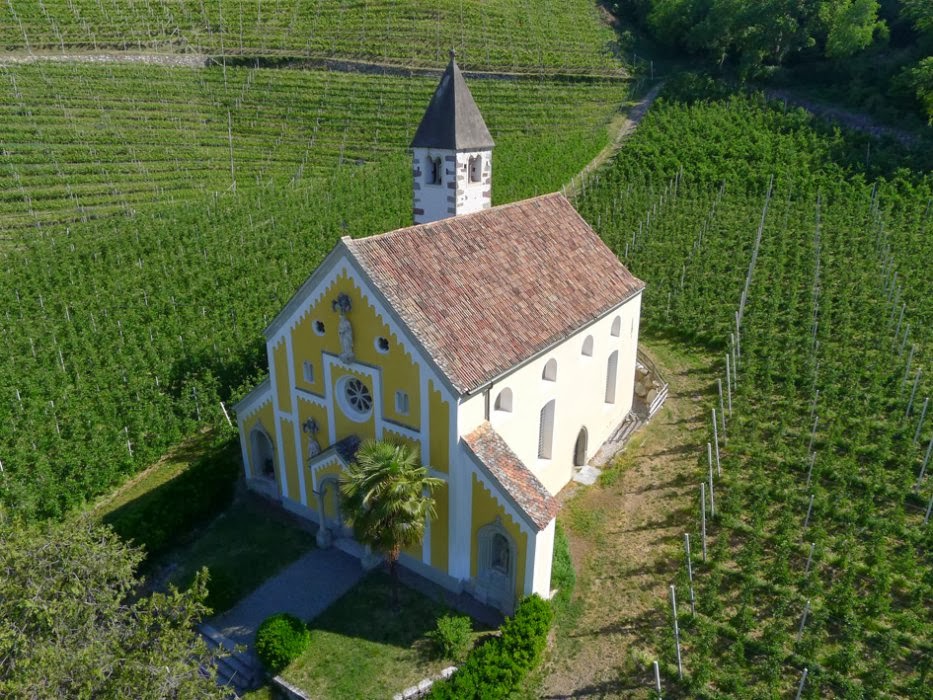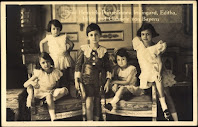On February 14 each year, Valentine's Day sends business soaring. Flowers, chocolates, and jewelry are on this day's most wanted gift lists to be exchanged between lovers. But how did Saint Valentine came to flowers, jewels, and chocolates? Or is he actually even the patron saint of lovers? For none of this has he done any work; it all involves an unusual inheritance that fell to him late in death.
I like history. If it is sometimes weird and wonderful, so much the better.
Showing posts with label Germany. Show all posts
Showing posts with label Germany. Show all posts
Sunday, January 19, 2014
Tuesday, December 3, 2013
Royal Connections Can Be Deceiving
Royal families always seem quite remote and completely above board. Royal connections, though, can come in funny places. Titles can be deceiving, too, and are not always as high flying as they sound. Previous history might prove to be not so Royal after all. This is the story of the parents of Queen Mary of the United Kingdom.
Tuesday, November 5, 2013
1,000 Years of Fun at The Fair
Emperors, Kings, and other rulers had the prerogative of granting the right to hold markets and fairs. Markets were regular affairs held on a specific day of the week every week; fairs were intended to be much larger and would be held over several days or even weeks once a year. Both were intended to strengthen local business and provide additional tax income.
Friday, November 1, 2013
Awkward: Gestapo Burial in Berlin Jewish Cemetery
German history researcher Johannes Tuchel made a series of very awkward discoveries. The discoveries shed light on post-war Germany and how it was (not) run by the allies, on the the machinations of the Simon Wiesenthal Center, and on what happens when sloppy research replaces real hard graft. Now he did the real hard work and here is what he found.
 |
| Adolf Hitler and Heinrich Müller |
Monday, September 16, 2013
The Town of Baden in Baden
The German town of Baden-Baden acquired its name officially in 1931 with a formal decision of the town's council.
Before that, it was simply called Baden and was the capital of the Grand Duchy of Baden until 1918. Baden was a bathing spa in
Roman times and was known as Aquae like Bath in England. Aquae in Latin and Bath in English have the same
meaning as Baden in German. How did Baden end up with the weird tautology of being called Baden-Baden?
Tuesday, August 20, 2013
Cologne Cathedral: The Shrine of The Magi
The German city of Cologne on the Rhine houses one of the most beautiful cathedrals in Central Europe. In it, visitors will find one of the most extraordinary works of art in existence: The shrine of the three holy Magi. Shrine and cathedral draw thousands of worshipers as well as art lovers from all over the world.
Saturday, June 15, 2013
Museum City: Basel
Basel is a cultural center with more than 60 museums. The city's special geographical situation bordering both Germany and France has brought forth peculiarities, such as three railway stations in the town center and a trinational airport. It is also a city steeped in legend, most of which is fervently believed by its inhabitants.
Friday, June 14, 2013
Antoine De Saint Exupéry and The Lost Prince
60 years after his death, Antoine de Saint Exupéry, author of The Little Prince, solved the riddle of the lost Hereditary Prince Alexis at Bentheim and at Steinfurt by default. This is for once not a ghost story or a conspiracy theory. Instead it is the story of two fighter pilots lost in World War II that never met in real life.
 |
| Alexis Prince zu Bentheim and zu Steinfurt |
Wednesday, June 12, 2013
Queen Edith of the Eastern Franks
When German archaeologists found Queen Edith’s remains in 2008, they were baffled and confounded. The remains had been found in a grave in Magdeburg's cathedral. Nobody had expected the find. True, documents mention her grave in the cathedral, and the grave had been a prominent one marked with her name. Then why the confusion?
Wednesday, December 26, 2012
Johann Sebastian Bach Plagiarized
Johann Sebastian Bach's Christmas Oratorio lay in musical archives for over 100 years. They were rediscovered around 1850. And music historians were amazed and dismayed: Bach had composed and used important parts of it before and plagiarized earlier compositions into the work. The originals, however, had very different texts, and these were not at all for Christmas or any liturgical use.
Sunday, November 4, 2012
Saturday, October 13, 2012
Imperial Wedding Document for Princess Theophanu of Byzantium
When Emperor Otto I went looking for a wife for his son, he wanted it to be a political statement. As the first Emperor from German stock, he was looking for acknowledgement by the other half of the Roman Empire. A princess of the house of Byzantium it had to be and nothing less. Once that goal was achieved, the newcomers went out of their way to show how much they appreciated the gesture.
Wednesday, October 10, 2012
Princes: Not All That Glitters
There are Princes and Princesses, and then there are Princes and Princesses. Some are Royal or more, some are not. The problem lies in geography. Depending on where the title came from, the title of Prince does not mean the same thing. The puzzle can be solved given some knowledge of geography and history, and quite some of the muddle derived from translating foreign titles into English.
Monday, October 8, 2012
Sunday, October 7, 2012
How to Make Your Own Predictions For The End of The World
An invaluable tool to invent your own apocalyptic predictions has come online, finally. With it, and a lot of creative invention, you’ll be able to concoct your own brand of doomsday scenario. Dresden State and University Library has been kind enough to publish it online. As far as vision and prophecy go, I have to admit, the original is not the most exciting bit about it.
Saturday, October 6, 2012
Emperor Frederick II: A Model Ruler?
Hohenstaufen Frederick II, Emperor of the Holy Roman Empire and King of Sicily and Jerusalem, was and still is regarded as a medieval thinker and philosopher breaking a lance for enlightenment and tolerance. As a proof thereof, his friendship with Muslim leaders is cited most often. The question is, is there any proof of this claimed friendship?
Friday, October 5, 2012
Subscribe to:
Comments (Atom)

















